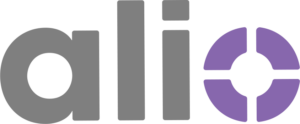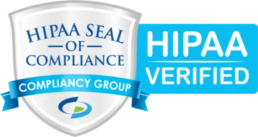Patients with chronic conditions rely on a comprehensive team of healthcare professionals for their care. This interdisciplinary team typically consists of physicians, nurse practitioners, nurses, dietitians, and social workers, all working together to ensure the best possible care for each patient.
At Alio®, we recognize the intricate nature of chronic care, and that is why we have assembled a diverse team of experts, including some of the essential members of a patient’s care team. In our latest blog series, we are spotlighting our in-house experts, delving into their career journeys and tapping into their insights about the future of chronic care.
This edition features Michelle Gilliland, Alio Strategic Account Manager, certified nephrology nurse, and a national director for the American Nephrology Nurses Association (ANNA).
Let’s start from the beginning. What drew you to nephrology nursing, and how did you get to where you are today?
MICHELLE: I had a family member with a rare autoimmune disease called wegner’s granulomatosis which can lead to kidney failure. The family member experienced this at a young age, and it hit us all by surprise. We then had another family member donate their kidney to him. That really inspired me, so when I was in business school, I started working as a technician in a dialysis facility. The staff and leadership there were so impressive so I decided this was a specialty I wanted to devote my life to.
I started my career in acute and chronic care settings and built from there. I got a degree in nursing and a master’s in nephrology nursing. I served as a director of operations and then worked on corporate-level vascular access equality projects and publications, and now I am working in the medical device space.
Why did you choose to pivot to the medical device industry and join Alio?
MICHELLE: I wanted to be part of an organization which drives innovation in the nephrology space, so when I first saw Alio’s technology, I started learning about it online. I am amazed by the platform. I see all of the possibilities for patients – improving the quality of care, saving lives, saving costs, and preventing hospitalizations and ER visits. What we will accomplish with this company will be groundbreaking.
With all of your years working in the nephrology field and your continued involvement, you clearly have insight into the challenges those working in the industry face. What are the biggest hurdles they have to navigate right now?
MICHELLE: To be honest, staffing shortages are the main problem, which is a problem all across healthcare. We lost a lot of nurses during the COVID crisis, and a lot of our nurses are middle-aged or older, and we do not have the early-career nurses we need.
There’s also been massive growth in our diabetes and hypertension epidemics in this country, and diabetes and high blood pressure are the two leading causes of kidney failure. Therefore, we have an increase in our Chronic Kidney Disease (CKD) patient population and End-Stage Kidney Disease (ESKD) patient population, and we do not have enough nurses and nephrologists to care for them.
Lastly, the nephrology space needs more new technology. Nephrology has been stagnant for the last 20+ years, and we are just now starting to see new technology enter the market, which will bring a better quality of care, increase access, and deliver better patient outcomes.
How are these staffing shortages and lack of innovation affecting patients?
MICHELLE: A lot of patients are getting lost in the shuffle, especially in the earlier stages of CKD. On top of that, we are seeing a lot of patients who are not diagnosed early enough with their CKD because we do not have enough resources to improve early detection.
So, based on your experience, what can be done to curtail these challenges?
MICHELLE: There needs to be a lot of outreach to schools, starting in grade school or junior high. Give these students the opportunity to shadow people in the industry. At the college level, we need a lot of outreach at job fairs to promote the nephrology space for not only nurses but also physicians.
We also need more community outreach in terms of hypertension and diabetes so we can slow the number of people entering into CKD and ESKD or prevent them from entering into these conditions altogether. Along with that, we need preventive community care, earlier detection of CKD, and better management upfront. Early detection and better management can prevent people from ending up on dialysis or in need of a transplant.
And then, of course, new technology needs to continue to be developed and adopted.
As someone with many years of experience in nephrology nursing, you have interacted with a diverse range of patients. Can you share a story about a particular patient or experience which has left a lasting impact on you and served as a source of inspiration in your career?
MICHELLE: It is hard to live with a chronic disease. Even after a transplant, you are still living with a chronic disease. Chronic care patients are incredible people with what they take on. A few stick out to me because they have become pioneers and patient advocates.
One of those patients is Alio Patient and Family Advisory Council (PFAC) member Nieltje. She sadly recently passed, but she started her own company and introduced new technologies to other patients. She was a champion of home therapies – she had a company called Home Dialysers United. She was a fierce advocate for patients in this setting, and she did a lot for health policy and patient advocacy. Not only was she dealing with chronic kidney disease, but she was a strong businesswoman. She was very driven and motivated and somehow found the energy within herself to represent renal patients across the country.
Outside of your work at Alio, you are very involved in the nephrology industry, specifically through your work with ANNA. Can you share a little more about the work ANNA does?
MICHELLE: ANNA are the experts in nephrology nursing. I have been serving ANNA for many years. Right now, I am a national director for ANNA, and that is a three-year term. I also serve as a local chapter president for ANNA. ANNA is a way for nephrology nurses in their specialty practices to network. There are several specialties within nephrology: pediatrics, transplant, acute dialysis, chronic dialysis, and home therapy and then there is a whole section for health policy, and there is a whole group for advanced practice nurses. For each specialty, ANNA provides resources, projects, and teams to help nephrology nurses grow their careers and become the best clinicians they can be.
Lastly, what fuels your commitment to improving nephrology care?
MICHELLE: I want to make a difference in the world. I want to leave the world in a better place. I want to be the kind of leader who leads by example. I want to be the kind of leader who inspires others to pursue their dreams and brings joy and humor to a team. When you lead with kindness, you can inspire anyone to do anything.









